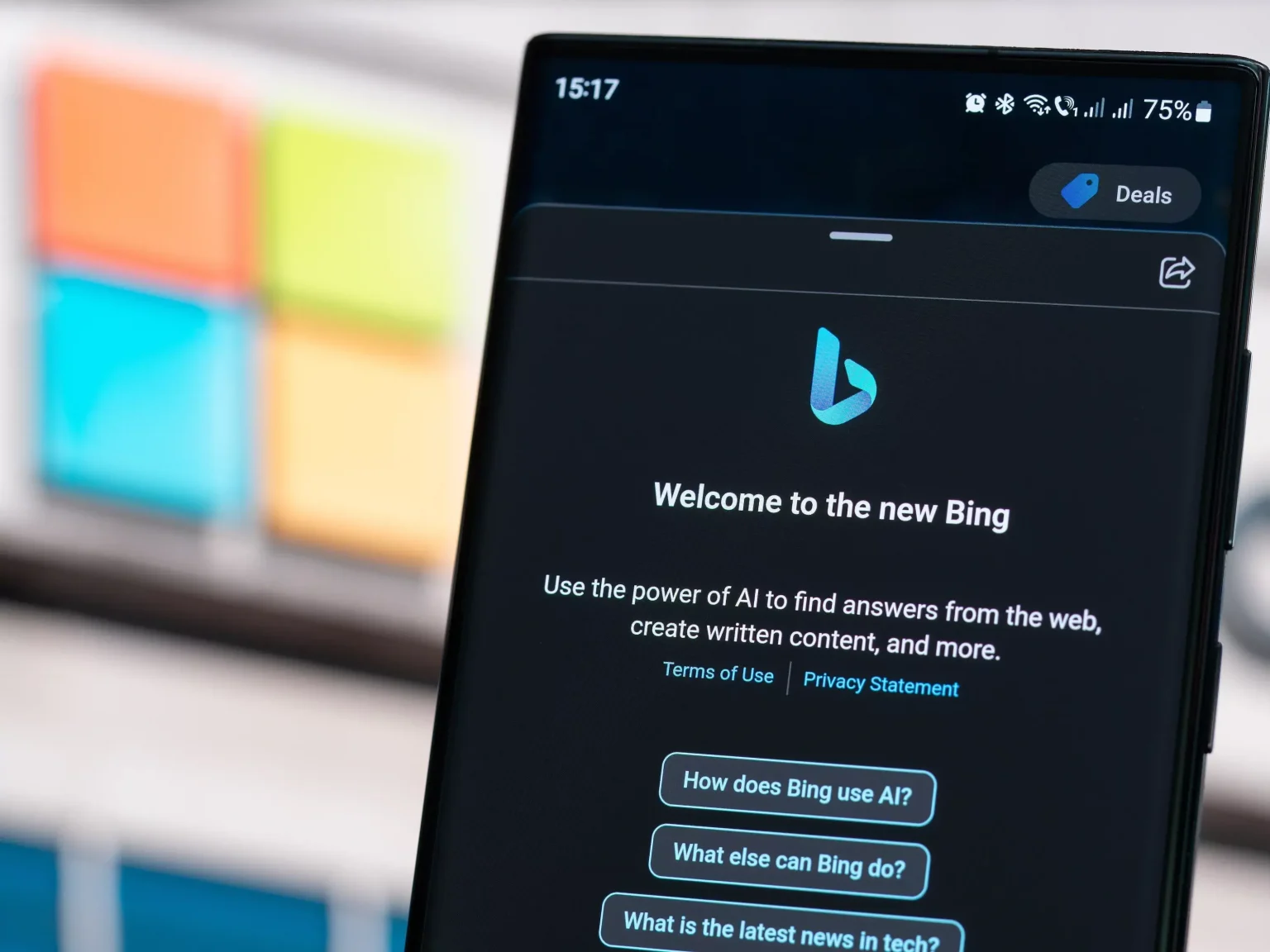- Bing’s Deep Search leverages GPT-4 to better understand and respond to complex search queries, enhancing result relevance.
- The feature has a longer response time, potentially taking up to 30 seconds to generate detailed answers, which may not suit all users.
- Concerns exist around overreliance on AI for interpreting queries, data privacy, and the resource-intensive nature of the feature.
Enhancing search intelligence: The role of AI in Bing’s new feature
Microsoft is integrating artificial intelligence (AI) across a broad range of its products and services, with its Bing search engine emerging as one of the key beneficiaries of this advancement. Recently, Microsoft announced the launch of the Bing Deep Search feature, powered by OpenAI’s latest generative large language model, GPT-4. This feature is designed to deliver more pertinent answers to complex search enquiries.
The impetus for introducing Bing Deep Search stems from the recognition that while search engines are formidable tools for sourcing information online, they sometimes do not meet our expectations, particularly when we encounter complex, subtle, or specific queries. Despite knowing what we are looking for, it often seems that search engines do not quite comprehend our needs. This gap led to the creation of Deep Search as a new function within Microsoft Bing, aimed at providing more relevant and comprehensive answers to the most intricate search queries.
One of the distinguishing features of Deep Search is its ability to “dispel” ambiguities in queries. If a query is open to multiple interpretations, Deep Search employs GPT-4 to identify all possible intents, subsequently providing a thorough description for each. This capability ensures a better grasp of the user’s intent, leading to more accurate search outcomes.
Also read: Want to interview a dead guy? AI dubbing makes it possible, but not everyone’s a fan
The flip side: Considering the limitations of deep search
Deep Search is engineered to produce results within 30 seconds, a duration that is justified by the processing power required to handle more detailed and comprehensive responses. It should be noted, however, that Deep Search is not suitable for all queries or users. It is specifically tailored for individuals facing complex questions that demand more than simple answers. Presently, it exists as an experimental feature and is being made available to a limited, randomly chosen group of Bing users as part of the ongoing testing and enhancement process.
While the introduction of Microsoft’s Bing Deep Search, powered by OpenAI’s GPT-4, marks a significant advancement in the realm of web searching, it’s crucial to approach this innovation with a balanced perspective. Advancements in technology, especially those involving AI, invariably come with their own set of challenges and limitations. In the context of Bing Deep Search, a deeper examination of its potential drawbacks is essential to understand the full spectrum of its impact. This is particularly important as the feature is still in its experimental phase, and Microsoft is likely to refine it further based on user feedback and technological developments. Let’s delve into an analysis of these drawbacks, keeping in mind that they represent current observations and may evolve as the technology and its usage mature.
- Time to Generate Results: One of the primary drawbacks noted is the time taken to generate results. Deep Search can take up to 30 seconds to complete, which is significantly longer than the nearly instantaneous results provided by traditional search engines. This might deter users who are accustomed to fast results, particularly for simpler queries where speed is more valued than depth of information.
- Complexity and User Experience: While the feature is designed for complex queries, the very complexity it addresses might make it less user-friendly for some. Users who are not looking for in-depth analysis or who prefer straightforward answers might find the Deep Search feature overwhelming or unnecessary. It may require a learning curve for users to effectively utilize this feature.
- Relevance and Accuracy of Expanded Queries: The expanded queries generated by GPT-4, intended to capture the user’s intent more accurately, could sometimes miss the mark. The AI’s interpretation of the query might not always align with what the user intended, potentially leading to irrelevant or less accurate results. This risk is particularly high with ambiguous queries where the AI has to guess the user’s intent.
- Overreliance on AI Interpretation: Deep Search relies heavily on AI to interpret and expand queries. While this can be powerful, it also introduces the risk of overreliance on AI’s understanding, which might not always capture the nuances of human thought or the specific context of the query. This could lead to results that are technically correct but contextually off-mark.
- Resource Intensiveness: The feature’s operation, given its need to search deeper and process more information, could be more resource-intensive than standard search functions. This might have implications for server load and energy consumption, particularly if used by a large number of users simultaneously.
- Experimental Status and Limited Availability: Currently, as an experimental feature, its availability is limited to a small group of users. This limited rollout might slow down the feedback loop and improvements based on a wide user base. The experimental nature also means that there might be more bugs or issues that need ironing out before it can be rolled out on a larger scale.
- Data Privacy and Security: Like any AI-driven tool, Deep Search may raise concerns about data privacy and security. The processing of detailed queries and the generation of comprehensive answers might involve handling sensitive user data, which could raise concerns about how this data is stored

